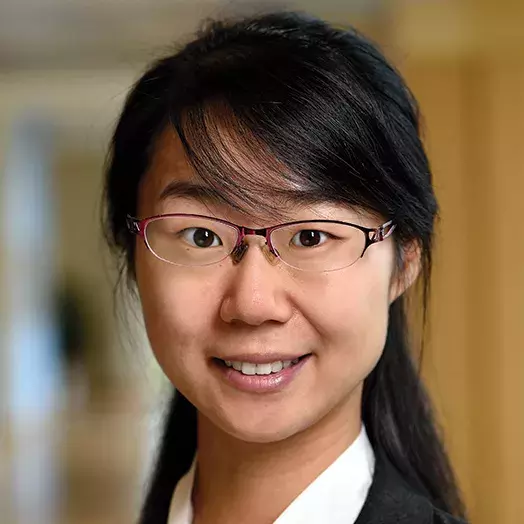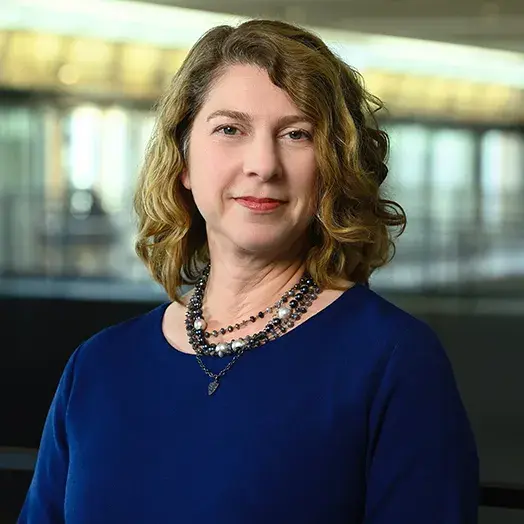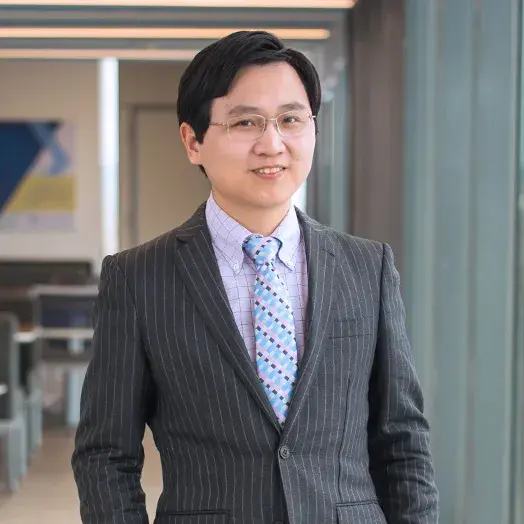Understanding what drives society to agree on something is part of what shapes its future. This interdisciplinary research sheds light on the challenge.

In a bias-driven society, what does it take to just agree?
We see it almost constantly: society can’t seem to agree on anything. Confirmation bias reigns supreme. What does it take for us to respect an expert’s opinion, or the opinion of a non-expert – and how long will it take for society to agree, if we ever do?
Johns Hopkins Carey Business School Assistant Professor Chen Cheng, an economist whose 2022 Johns Hopkins Discovery Award is helping advance the understanding of deception and bad-faith communications, wants to find out.
Why would an economist want to research communication and bias? Cheng is interested in what is known in her field as political economy and social networks. Communicators start from different positions. Some want to be as clear as possible because they have a unifying goal—mutual understanding, for example. Others have a preferred outcome that requires a manipulated or strategic way of communicating a message.
“If two people share the same set of preferences, but have different information, the extent to which the information is covered is usually limited not by our intention of the communication but more by the tools – how precise the language is, how competent someone is in deciphering a message, et cetera.” Cheng explained.
What to Read Next

career outcomes
Bridging financial gaps: An alumnus’ mission to break down financial inequalitiesBridging disciplines
Despite the shared academic interest, there isn’t much interdisciplinary research on the topic. Cheng’s research, with support from the Johns Hopkins Discovery Award, is an interdisciplinary approach to how language impacts outcomes.
“It’s very interesting to see that different disciplines make different assumptions about people’s behavior,” said Cheng. “Sometimes people try to understand each other and communicate their intentions, so they’re built around a set of rules or language that everyone will understand. However, in economics, people most often operate around a strategic set. There is a huge distinction between how different disciplines tackle communication.”
Cheng offers an example: An overarching government can issue a perfectly clear message about its policies for fighting the spread of COVID-19. The same message may win the officials some supporters and cost them others. It may turn out that the policies are actually very vague. In many situations, the messaging language is deliberately chosen. It could be to test whether local governments are loyal to the overarching government, or it could be because the overarching government is trying to ensure support from its historical or targeted allies without losing the support from others.
The political arena is not the only place that miscommunication—or intentional manipulation—can happen. In the above example, we may think that leaders and local officials have different objectives, hence the strategic communication. But even in cases where people simply aggregate information, they may never agree on what the information means.
To understand the intersection between economics and communication in this kind of modelling, Cheng studied social networks. This isn’t just social media; it’s your circle of friends and family, the people whose word you trust, the coworkers you align with, even the neighbors you’re more likely to talk to. Cheng wanted to see how the extent to which we trust an opinion, from an expert or a non-expert, would affect how long society would disagree on the matter at hand.
When it comes to expertise, Cheng’s study points to interaction between homophily, which is the tendency we have to seek out others who are similar to ourselves, and the extent to which we trust an expert’s opinion. When a society is not very homophilous, respect for authority always leads to quicker agreement. The more homophily in the network, the longer it takes to reach consensus on a challenging idea.
Advancing the work
The Discovery Award is helping Cheng advance the work studying policy and language. The Johns Hopkins University grant allows Cheng to work with co-principal investigators and students in the fields of economics, philosophy, and language.
“This is very fruitful,” Cheng said. “I learned a lot by reading their literature, and they learned a lot by reading economics literature. We’re planning to organize seminars, perhaps conferences, and write papers as a result of this research.”
She recently presented her working paper on the study at a social networks conference. The next step in the research, Cheng said, is to better understand how to compare policies and language usage across societies, measuring how language is leveraged. The team is particularly interested in more interdisciplinary investigations, both theoretically and experimentally.


